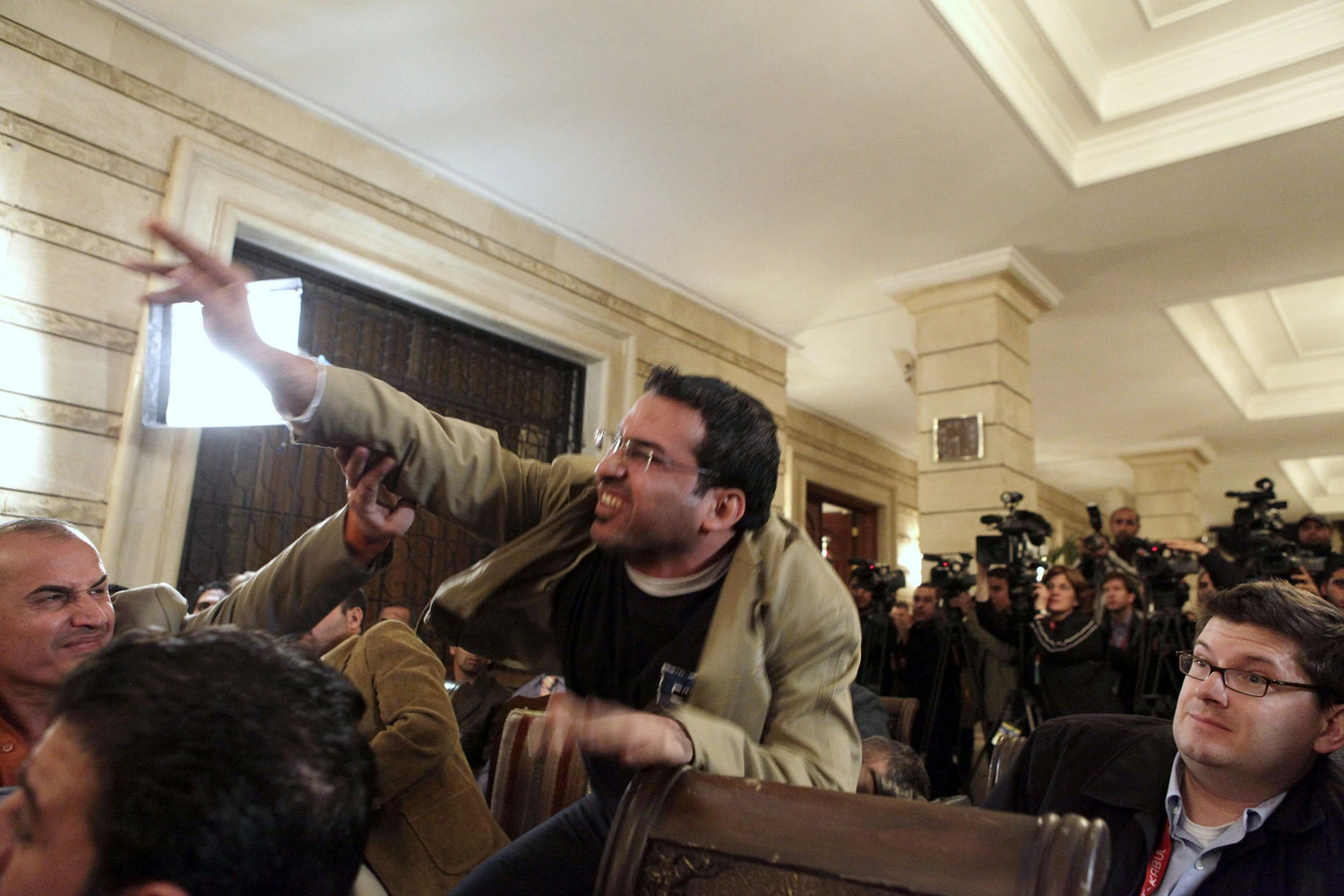Did the Iraq War Happen?
By Saudiel Benitez
Photograph by Evan Vucci, AP
The Iraq War, one the most influential wars in foreign politics and international affairs, seems to be forgotten by young people across the United States. Not many are old enough to remember the patriotic mystique that emboldened the nation after 9/11. Only in hindsight do people realize that the George W. Bush administration used that patriotism to wreak destruction and forever change world politics. Despite the unveiled destruction and lies, we see public opinion of Bush start to change. Former President Bush has made media appearances on Ellen and gained favorability. At the end of his term he had a 33% approval rating among Americans, and we see that increase to 61% in 2018. In 2003, 72% of Americans even supported the Iraq war, yet polls today show that 39% say they supported the war. How can one of the most infamous war criminals have majority support in America, while Americans realize the abhorrent mistake the Iraq War was?
Rallying Cry
September 11th, 2001 is remembered and engraved in the minds of every American as a tragic event that changed America. It seems less clear to Americans how the events leading up to 9/11 and after 9/11 shaped our foreign policy. The Bush administration worked to fabricate the perfect conditions for war. Saddam Hussien became the perfect scapegoat for Bush to channel American retribution and a clear victory for his administration. The Bush administration would lie that Iraq was working on Weapons of Mass Destruction (WMD), which incited fear in the public and politicians. Soon American’s picked up on the fear mongering, MSNBC even reported on a video game where you hunt Saddam Hussien. Even a liberal reporter wrote an article discussing the consideration of torture to gather intelligence. Bush was “a popular president promoting war,” so “Democrats in Congress were reluctant to criticize him.” Support for the war was bipartisan.
Pulling Back the Curtain
You do not need to go far to see the wrongdoings of Saddam Hussien’s Iraq. American history and resources can easily provide many of their human rights violations. What you might struggle to find is the United States’ human rights violations and corruption. Declassified CIA files showed that America helped Saddam by doing “nothing to assist Iran in its attempts to bring proof of illegal Iraqi chemical attacks to light. Nor did the administration inform the United Nations.” John Bolton, a former bush administration official, threatened a member from the Organization for the Prohibition of Chemical Weapons a year before the invasion.
At one point, the United States even considered recruiting citizens to work as informants. When resistance started fighting back against the United States occupation, the Bush admin characterized them as terrorists who attacked civilians. Though, even US intel shows that resistance forces did not target civilians. The photograph from Evan Vucci at the top is an Iraq reporter, who during a press conference, threw both his shoes at President Bush. The reporter, Muntazer al-Zaidi, talks about how he was humiliated to see his country destroyed along with the tragedies he saw.
During the occupation of Iraq, one Blackwater security guard killed 14 Iraqi civilians and wounded 31 in Baghdad. A United States raid on an Iraqi hospital, reducing it to rubble. The US was not even honest about the death rate at the time, as it was “31 times higher than officially reported by the U.S. Military.” The Iraq war ended up killing over 112,000 Iraqi civilians.
Just History, Right?
The Iraq War is not often considered among young people, but no doubt influenced how Presidential administrations wage war and imperialism for political power. Though the Iraq War may have come to a halt, these tactics certainly did not end with future Presidents Barack Obama and Donald Trump. President Obama used over 500 drone strikes, killing over 300 civilians in Pakistan, Yemen, and Somalia. With Trump we see him assassinate Iran’s second in command, Qasem Soleimani in Iraq. The legacy of the Iraq war still influences politics today, and if we ever want to understand how we got to this point, we need to understand the Iraq War.


